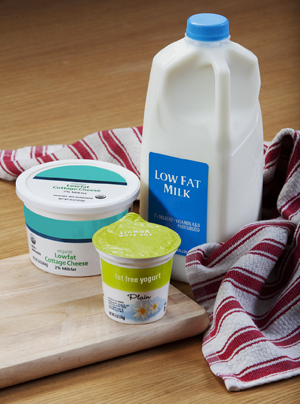Calcium Supplements
Calcium Supplements
Calcium is a mineral that helps make strong bones and teeth. Most of the calcium in your body is in your bones. It takes almost half of your life (30 to 35 years) for your bones to reach their maximum size and strength (peak bone mass). When you are younger, taking in enough calcium helps you build strong bones. When you are older, getting enough calcium in your diet helps to limit bone loss. Your body can’t make calcium, so you must get it from foods or supplements.

Why use a supplement?
You might need a supplement if any of the following is true for you:
-
I don’t eat dairy products or other foods that are high in calcium such as kale, bok choy, and calcium-fortified foods 2 to 3 times a day.
-
I am a woman past menopause.
-
I am pregnant or breastfeeding.
-
I don't do frequent weight-bearing exercises such as walking, running, or weightlifting.
The daily recommended amount of calcium depends on many factors. This includes your age and if you are a man or a woman. Your healthcare provider can help you choose the right amount of calcium for you.
If you take calcium
Here are some tips to help you get the most from a calcium supplement:
-
Choose calcium carbonate or calcium citrate. Calcium carbonate needs stomach acid to be absorbed. So it's best absorbed when taken with meals. Calcium citrate is absorbed the same when taken with or without food.
-
Check the label for elemental calcium. You need 1,000 to 1,500 mg a day. This should come from diet and supplements. Figure out how much calcium is in your diet and choose the correct supplement.
-
If you also take an iron supplement, take it a few hours before or after the calcium.
-
Be aware that taking calcium interferes with the absorption of some bacteria-fighting medicines (antibiotics). Talk to your provider or pharmacist.
-
Eat a balanced diet to get all the nutrients your body needs.
Sources of calcium
-
Milk, yogurt, and cheese
-
Certain green leafy vegetables, such as kale, bok choy, and collard greens
-
Fish with bones, such as canned salmon, mackerel, and sardines
-
Tofu made with calcium carbonate (not the type of tofu called nagiri)
-
Drinks that have calcium added, such as some orange juice and rice and soy drinks
Updated:
October 17, 2019
Reviewed By:
Diane Horowitz MD,Paula Goode RN BSN MSN,Raymond Kent Turley BSN MSN RN